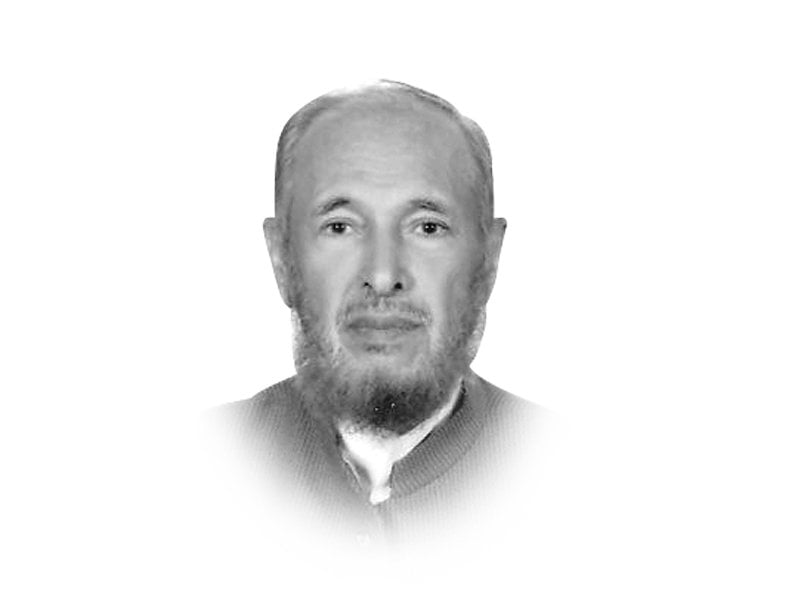
While there is a legal vacuum in the wake of the old system being no longer functional, voices of dissent are being raised across the whole merged area against the introduction of the new system of governance. ‘Jirgas’ have been held in all former tribal agencies expressing a resolve not to accept the induction of police and demanding the continuance of the system of ‘jirgas’ for adjudicating upon disputes, etc.
Not surprisingly, people in the merged areas have begun to compare the old system with what is in store for them in the new dispensation. With no expensive lawyers to engage and not waiting for years for a court case to be resolved, life for the rank and file tribesmen was simple, peaceful and inexpensive. Because of institutionalised accountability that was woven into the system, crime rate was low and crimes such as rapes, dacoities, robberies and murders were few and far between. Such was the code of life that Hindus and Sikhs who lived alongside the tribes for over a millennium, never ever felt threatened or in any way less safe and secure because of ethnicity. That would testify to the egalitarian nature of the tribal society.
Now all that would change. Cases would take time, years to resolve; lawyers will have to be brought into the system at great cost to the community; land disputes would erupt all over the area because there has been no land settlement; apprehending culprits would be difficult because the community or the tribe concerned would no longer bear responsibility to produce the accused in a criminal case.
But on the other hand, the protagonists of the new scheme argue that the Jirga system was open to abuses and that Jirga members had become partisans in their approach to the proceedings; there were complaints about large-scale corruption of political officers.
These grievances, in large measure, were true. But there was a method in the madness. Governors who supervised the administration of the tribal area under the old system had begun to be appointed in most cases post 2006-07, on consideration other than experience, integrity or competence — in some cases, in exchange for huge sums of money!
Does one then blame the system or the people at the helm?
But merger is a reality now. What needs to be done is to formulate policies that are down to earth and compatible with the new scheme of things on the one hand and cause as minimum hardship as possible to the tribes on the other.
This goal can be accomplished by taking steps to incorporate the elements of the old system that have widespread support of the people of the tribal area. Not only that such practices or conventions have delivered peace and ensured harmony in difficult environments.
Some of these institutions are the system of trial by jury or Jirga. The other pillar of the defunct system is the creation of local force i.e. Levies and Khasadars which would have all the powers of the police but would be placed under the local command of deputy commissioner. This is needed in order to ensure expeditious execution of policy, of quick implementation of orders, of maintaining social harmony and helping to create an environment that is conducive to carrying out development works.
In order to ensure the success of the new system, power and authority must be concentrated in district officers for speedy disposal of cases. The system, for it to deliver, must have an effective captain of the team in the shape of a deputy commissioner who wields powers under the criminal procedure code and the Pakistan penal code.
The goal is to provide speedy justice on the one hand and to save huge funds being wasted on creating new, costly administrative infrastructure on the other. The billions of rupees that are envisaged to be spent on building offices, courts, police lines, residences, etc, would be saved. Such huge resources could be invested in sectors like education, drinking water, electricity, hospitals, mineral exploration, vocational centres, parks and village roads.
People of the merged districts have never opposed development works and even now are demanding more robust interventions for building dams, highways, power stations, etc. In the event of embarking on construction of thousands of residences, office complexes, courts, police lines, etc, precious resources would be allocated for such non-development sectors that would deliver no prosperity but would destroy the scarce land resource that is available for agriculture. Mainstreaming of the former tribal area would mean integrating the area by investing in quality education and development of physical and human resources. Mainstreaming should not mean imposing a system of police and revenue administration that the people despise.
People of the former tribal area have suffered unquantifiable losses. Thousands have lost their lives; thousands others have been disabled; villages and markets have been decimated; the economy has been ruined; drones and bombs have played havoc with lif and property.
It is time to heal the wounds. It is time to rehabilitate the area and the people. This can be done by ensuring peace and tranquillity. That can happen when we don’t ignore the sentiments, aspirations and wishes of the impoverished tribesmen. Let us take them on board in the historic task of reconciliation, reconstruction and rehabilitation.
Imposing a system that is incompatible with the norms, values and culture of the people and does not deliver justice and leads to more insecurity and more lawlessness would have disastrous implications.
Published in The Express Tribune, February 21st, 2019.
Like Opinion & Editorial on Facebook, follow @ETOpEd on Twitter to receive all updates on all our daily pieces.







1727268465-0/Untitled-design-(42)1727268465-0-270x192.webp)





COMMENTS
Comments are moderated and generally will be posted if they are on-topic and not abusive.
For more information, please see our Comments FAQ